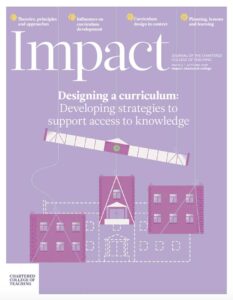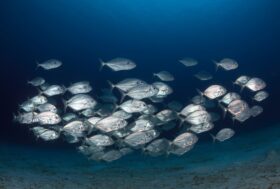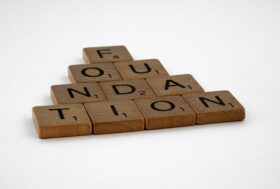The Excellence Curriculum: Developing a curriculum that is knowledge-rich, builds skills and is underpinned by how children learn

Designing a new curriculum involves striking a crucial balance between subject knowledge, core skills and how children actually learn. In our Hackney primary school, that is precisely what we are doing, along with developing teacher’s understanding and application of cognitive scienceThe study of the human mind, such as the processes of though... More so that we are building ‘a school within a school’.
Excellence for Students
To attempt to achieve this balance, we decided to construct a thematic curriculum, The Excellence Curriculum, for a new academic year. The whole school focuses on one ‘theme’ throughout a half-term, with ‘subthemes’ per year group, ranging from: World History, to Brilliant Britons, to Diverse De Beauvoir. Staff select a ‘Golden Thread Question’ to run through the core of the theme to frame the subject and ensure that the theme is taught in a sequential and coherent way. From this, staff then decide on content that must be taught and assessed across the theme. For example, rather than just studying a topic such as The Egyptians, students will address the question ‘Why Were the Pyramids Built?’ Following this, a congruent, structured set of thematic lessons will be developed to build children’s schema of knowledge. This should allow students to form a coherent understanding of ‘The Egyptians’, rather than pockets of information on the topic remaining isolated, helping them to commit knowledge to memory: it will help to ensure children not only have the trees, but a view of the forest (Willingham, 2017).
The knowledge children will be expected to have will be placed onto a Knowledge Organiser (Stull and Mayer, 2017) and carefully, strategically and precisely planned out, helping to develop teacher clarity and aid memory for students. It is, however, imperative that students do not see it as isolated knowledge: they may memorise definitions or who Cleopatra was but fail to see how the knowledge is connected to ‘Why Were the Pyramids Built?’ These Knowledge Organisers must serve to support the overall view of the forest (Willingham, 2003). Knowledge Organisers will also be used alongside skills progression. For our Humanities subjects, a clear and sequential skills progression map has been written from Year 1 – Year 6 so that skills are being embedded and enhanced throughout the key stages, from developing students’ techniques in sketching and chalks to developing their ability to historically interpret information. The skills which children will acquire will be contextualised within a theme whilst still maintaining the integrity of the subject itself. It will ensure children’s knowledge and skills are deepened as they’re drawn upon throughout the theme to apply in a variety of contexts as thinking about meaning helps memory: year 6 students can draw on their acquired knowledge of the life, character and disposition of Winston Churchill, the context of World War II and how battles were fought in order to re-write his infamous speech in a writing lesson – we are planning for connected and relational learning between concepts (Hyde and Jenkins, 1969) within a theme.
Building a knowledge-rich curriculum whilst developing children’s core skills means that teachers must also plan for what skills are to be taught and developed within the theme, creating a Learning Framework in Context (half-termly) from the school’s Yearly Learning Framework, helping children to further contextualise their learnt knowledge. Students in Year 5 may learn to develop chalk skills through creating replicas of different star constellations within the theme of ‘What Impact Did the Greeks Have on Today’s Society?’ Or a Year 4 theme of ‘Were the Vikings that Vicious?’ will see children having the opportunity to explore the narrative of Beowulf and through Science develop their knowledge about what forces are and how they acted on Viking long ships whilst travelling. We will build curiosity and intrigue into a theme as the more we know about something, the more likely we will want to learn about it (Hattie and Yates, 2013). For our students, we will build on existing knowledge gradually and incrementally and help forge and consolidate connections as they are applying both knowledge acquired and skills developed; the more connections we have, the more comprehensive and refined our understanding becomes, and the easier is it to access in the future (Mccrea, 2018).
Excellence for Staff
Creating the Excellence Curriculum for our children with teachers, and underpinned by cognitive science, will ensure we have a new learning curriculum for teachers as well. Teachers can be at risk of stopping improving after the initial learning curve upon entering the profession (Allen and Sims, 2018) and creating a culture of a ‘school within a school’ and a climate for teacher development will help encourage teachers to get better and therefore have a substantial and measurable impact on teacher improvement and student learning (Kraft and Papay, 2014).
Often in schools, our main focus is on what we do and how we do it. Developing a clear understanding of why we do certain tasks and procedures is paramount; staff prefer to be lead rather than pushed. Teachers’ answers to why a curriculum is structured the way it is should be informed and guided by current scientific consensus around key concepts in cognitive science (Deans for Impact, 2015); they should have a detailed, forensic view on why they have structured their curricula the way they have. At the foundation level of planning, staff will think strategically about the knowledge which is mapped out alongside skills being developed, and subsequently the connections made throughout the theme.
During our CPD sessions next academic year, teachers will begin to connect key cognitive principles to implications for the classroom within our Excellence Curriculum, using The Science of Learning (Deans for Impact, 2015), Principles of Instruction (Rosenshine, 2012) and The Learning Curriculum (Fletcher-Wood et al., 2018). Using a ‘Lesson Study’ model, whereby the focus of each term will be a different element of cognitive science, will aid staff in seeing, at ground level, the implications and impact of the applied principle, ranging from Cognitive Load TheoryAbbreviated to CLT, the idea that working memory is limited ... More to Multimedia Instruction and elements in between. Teachers need the opportunity to develop their behaviours inside the classroom, rather than simply being told what to do: through effective CPD, weaving deliberate practice into development sessions will help staff to ‘practise’ before they go ‘live’.
Excellence reviewed
Teaching thematically is nothing new. What we are doing is aligning the school’s themes and underpinning each with a key question to strategically map out skills and knowledge, and root it firmly in cognitive science. As with any new system and procedure, reviewing its impact is vital. Therefore, we will be mapping half-termly ‘checkpoints’ with various members of the whole school community using a range of internal and external ‘lenses’ to assess its impact. This will be achieved by engaging with teachers, conducting planning reviews, learning walks, book looks and using pupil voice – the children will play a central role in evaluating its impact and reshaping the curriculum offer so that by the end of 2019, the school’s curriculum will be fully embedded. Hopefully, the view of the forest will become clearer for students and teachers alike.










